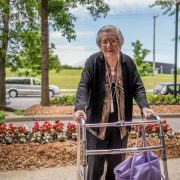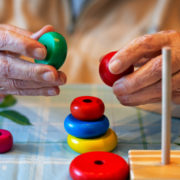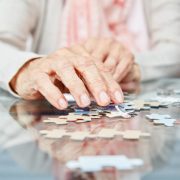Celebrating National Family Reunion Month in Facilities for Alzheimer’s
July marks National Family Reunion Month, a time to reconnect with family. In care settings that support individuals with memory loss, this month presents a unique opportunity to reconnect in ways that feel familiar and meaningful. Even small moments shared with loved ones can bring comfort.
For those living in facilities for Alzheimer’s, these reunions may help strengthen emotional ties that still matter deeply, even when memories begin to fade.
The Power of Family Connections
National Family Reunion Month celebrates the importance of reconnecting with loved ones across generations and distance. In memory care settings, this celebration can hold more profound meaning, offering comfort and emotional reassurance to those coping with memory loss. Reunions bring more than moments, as they also bring familiarity, which can be especially meaningful in Alzheimer’s care.
Family presence has a decisive role in supporting individuals with Alzheimer’s:
- Reduce feelings of isolation and confusion
- Reinforce recognition through repeated interaction
- Offer emotional grounding through familiar voices and faces
- Stimulate memory recall through shared stories
- Improve mood and reduce agitation
- Strengthening trust in daily caregivers when family is involved
- Encourage a sense of belonging in unfamiliar surroundings
- Create joyful moments even without full memory retention
- Support a more positive outlook on daily routines
- Help staff tailor care with input from loved ones in facilities for Alzheimer’s
When families stay actively involved, they help preserve not only a person’s sense of identity but also the dignity and emotional continuity that often fade during the progression of Alzheimer’s.
Planning Meaningful Reunions for Memory Support Residents
Visiting a loved one with Alzheimer’s is often very different from what families remember. Familiar conversations may no longer flow as smoothly, and reactions can feel unpredictable. This is why careful planning is essential to help make reunions not only comfortable but also meaningful for those living with memory loss.
Here are tips for family-oriented reunion activities for a meaningful experience for individuals with the progressive condition:
- Use memory books filled with familiar faces
- Play familiar music they once enjoyed
- Choose a sensory-friendly environment
- Keep the setting calm and simple
- Focus on one activity at a time
- Visit during their most alert hours
- Bring comforting objects from home
- Limit background noise and movement
- Greet them by name and with eye contact
- Allow time for reactions and quiet moments
Well-planned reunions in facilities for Alzheimer’s serve as quiet affirmations that each resident still holds a valued place in the life and rhythm of their family.
Inclusive Activities to Strengthen Bonds
Inclusive activities are those designed so everyone can participate meaningfully regardless of age, ability, or cognitive condition. These moments help bridge emotional gaps, spark connections, and remind loved ones that relationships remain valuable, even when memories fade.
Here are suggested inclusive activities that families can enjoy with individuals with Alzheimer’s:
- Play simple games like picture bingo
- Share meals during a calm, relaxed gathering
- Take turns telling family stories
- Listen to familiar songs together
- Look through photo albums
- Water plants or arrange flowers
- Do light crafts with help
In facilities for Alzheimer’s patients, shared participation in familiar moments allows families to build new memories while honoring the past.
Looking for excellent care in Nebraska? Click here to learn about Fallbrook Assisted Living!
Fallbrook Assisted Living is proud to offer its services to Fremont, NE, and surrounding areas and cities: Arlington, Cedar Bluffs, Ames Nickerson, Fontanelle, Arlington, Leshara, Colon, and Hooper











